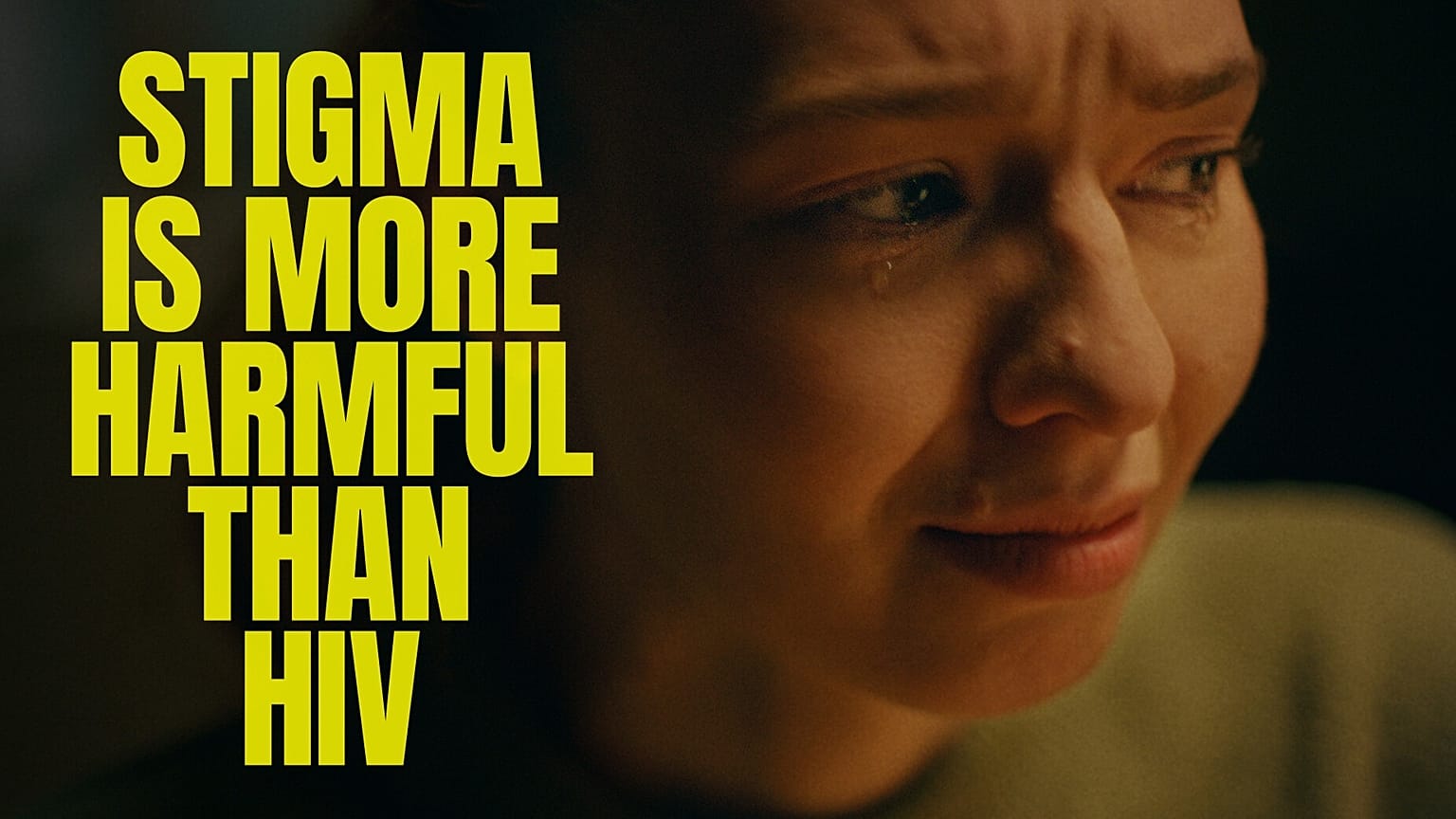European health agencies have repeatedly warned that persistent stigma against HIV-positive people means many are going untested and undiagnosed for years.
Scottish TV viewers are now being targeted with the UK's first major public health campaign against HIV/AIDS in four decades.
The advertisement is the work of the Terrence Higgins Trust (THT), Britain's top HIV charity.
It is intended to combat the stigma that still surrounds the virus despite major improvements in diagnosis, treatment and prevention methods, which have radically curbed its spread in the UK and other countries.
The original British government-backed campaign to raise awareness of the virus offered two of the most memorable TV clips of the 1980s, one featuring a giant black tombstone and another an iceberg inscribed with the word AIDS.
Made at a time when there were no effective treatments for the disease, the short adverts urged the general population to educate itself about HIV, using the slogan "Don't Die of Ignorance".
By contrast, the THT ad now airing in Scotland is focussed not on risk but on stigma.
Announcing the launch of its campaign, the charity explained that in Scotland, attitudes to people testing positive for HIV have lagged far behind medical progress.
"New research released today found worryingly low levels of knowledge about HIV. Just one third (35%) of people in Scotland would be happy to kiss someone living with HIV, despite it being known since the 1980s that HIV can’t be passed on through saliva," the organisation said of polling funded by the Scottish Government.
"The data also shows almost half (46%) of people in Scotland would be ashamed to tell other people they were HIV positive – demonstrating just how stigmatised a condition HIV remains today.
"A lack of knowledge about how much progress has been made in the fight against HIV in the last 40 years is also clear in the data, with just a third of Scots aware that people living with HIV and on effective treatment can’t pass it on to partners."
Changing times
During the 1980s, Scottish cities saw some of the highest HIV infection rates in Europe, a crisis widely attributed to the sharing of contaminated hypodermic needles between drug users.
While the UK government of the time was staunchly socially conservative, particularly when it came to homosexuality, needle exchanges were introduced to mitigate the spread of HIV via syringe-sharing.
In the wider UK, meanwhile, the availability of pre-exposure prophylaxis, or PrEP, via the National Health Service (NHS) means that many populations at higher risk of contracting HIV are now able to protect themselves from the virus.
The available medication also means that those already testing positive can reduce their viral load to an undetectable level and effectively eliminate the risk of infecting others.
According to recent data from the European Centre for Disease Prevention and Control (ECDC) and the World Health Organisation (WHO), the number of people in Europe living with undiagnosed HIV has been rising in recent years – and just as the THT describes the situation in Scotland, stigma remains high on the list of factors.
"Continuing, widespread stigma around HIV is deterring people from getting tested and is steering us dangerously off course from meeting our 2030 goal of ending AIDS," said WHO Regional Director for Europe, Dr Hans Henri P. Kluge.
"If we are to deliver on our promise, we must make access to HIV services equitable. We must work together to make sure that no one feels afraid of getting tested, nor shame, despair or isolation about their status. Everyone, everywhere should be able to get the services and respectful care they need."


















